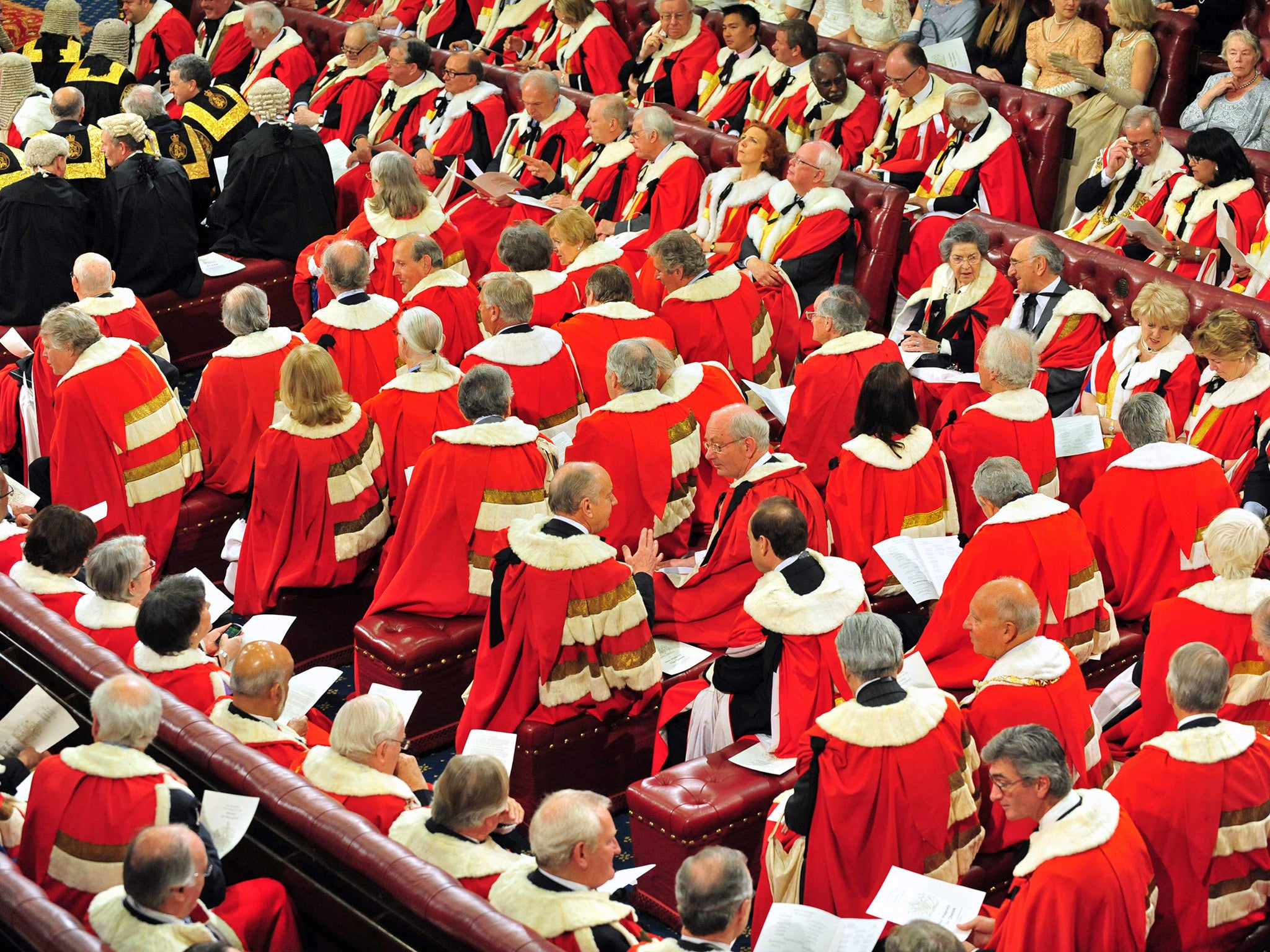Our gung-ho Lords and Ladies won’t be easily restrained
My guess is that the Lords’ veto right on delegated legislation will be replaced with time-limited powers of delay


When the House of Lords voted on October 26 to delay cuts in tax credits, which were to have been the centrepiece of the Chancellor of the Exchequer’s Spending Review, the Government was outraged and vowed retribution. It asked Lord Strathclyde, a Conservative peer, to carry out a review. Strathclyde is a former Leader of the Lords and one of the few hereditary peers left in the chamber. He will complete his work by Christmas.
While we wait, a second fight between the Government and Lords is taking place. The battleground is the EU Referendum Bill, which must pass both Houses before a date can be set for the so-called “Brexit” referendum. Delays in passing this bill could upset the Prime Minister’s hope for a vote before next summer.
The point at issue is that the Lords has amended the bill so as to lower the voting age to 16 years. On Tuesday, the House of Commons rejected this amendment by 303 votes to 253 – a majority of 50. For technical reasons that I shall describe, the Lords cannot prevail – but the larger question is whether this amendment goes beyond its basic task of making improvements to legislation sent to it by the Commons.
The classic definition of the functions of the Lords (set out by the Bryce Commission in 1918) divided them into four: cause sufficient delay to make room for reconsideration by the government or the public of measures affecting our constitutional arrangements; examine and revise bills passed by the Commons; initiate bills on non-controversial matters and hold “full and free discussion” of large and important questions where no legislation is proposed, such as last week’s Syria debate.
The Brexit bill clearly comes under the first of these duties because Britain’s membership of the European Union is a constitutional matter. So bringing about a pause is in order. But that was not the Lords’ main purpose: they wanted to open up a new constitutional principle regarding the voting age. Here, they are definitely out of order.
As it happens, however, a technical obstacle will bring this issue to a swift conclusion. If a bill involves expenditure, as to a small extent the Lords’ amendment does, then it needs a money resolution to authorise that expenditure. And here the Lords’ amendment crashes against the primacy of the Commons in spending and taxation first established in the 17th century: the Commons’ “financial privilege”. For the Commons alone can propose and carry a money resolution.
Usually the Commons waives this privilege but in this case it has decided not to. Consequently I do not see how the Labour, Liberal Democrat and crossbench peers preparing to defy the Government can succeed – and nor should they.
If anything, the issues that Lord Strathclyde is considering are even more complicated and I ask for readers’ indulgence. The detail sometimes borders on the bizarre. The starting point is simple enough. The Conservatives lack a majority in the Upper House. As a result, the process of getting bills approved by the Commons onto the Statute Book may be long and drawn out, even though the Commons can always prevail in the end. What to do?
Cameron’s answer is to make much greater use of what is known as delegated legislation. Without most of us being aware of it, a great deal of public law is framed in this way. Delegated legislation allows the Government to make changes to a law without needing to push through a completely new Act of Parliament. Often an act contains only a broad framework of its purpose and more complex content is added through delegated legislation. This additional material usually gets only scant parliamentary examination. Which may be fine where, say, technical regulations are concerned. But government ministers find it hard to resist the temptation to slip matters of principle and policy into delegated legislation, with its much lower levels of scrutiny, and this is the opportunity that the Prime Minister is hoping to exploit.
Except that, oddly, in the case of delegated legislation, the House of Lords’ powers are much greater than they are with primary legislation. While the Lords cannot veto primary legislation, only amend it or delay it, they can stop delegated legislation in its tracks. That is why, when George Osborne heard the news of the Lords’ action on tax credits, he immediately said that he would heed the outcome of the vote. He had no choice.
It can be seen from the above that something has to give. However there is a phrase in the Government statement describing Lord Strathclyde’s remit that suggests that he must proceed with subtlety. The Government observes that: “By long-standing convention the House of Lords does not seek to challenge the primacy of the elected House on spending and taxation.” This is not an issue.
The statement goes on: “It also does not reject statutory instruments (i.e. delegated legislation) save in exceptional circumstances. Until last month, only five statutory instruments had been rejected by the House of Lords since the Second World War.” Given how powerful has been its right of veto, until now the chamber has deliberately acted with considerable restraint. Today, the Lords is the most gung-ho it has been in the past 100 years.
Now comes the key passage: “The purpose of the review is to examine how to protect the ability of elected governments to secure their business in Parliament in light of the operation of these conventions.” In other words, the conventions are to stay – albeit amended. My guess is that the Lords’ veto right on delegated legislation will be replaced with time-limited powers of delay. That won’t exactly please the Prime Minister, who is quite as gung-ho as the present generation of peers, but it would be a good decision.



Join our commenting forum
Join thought-provoking conversations, follow other Independent readers and see their replies